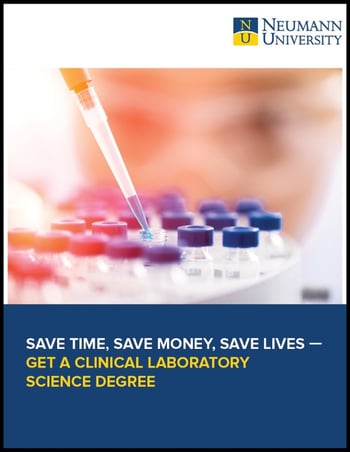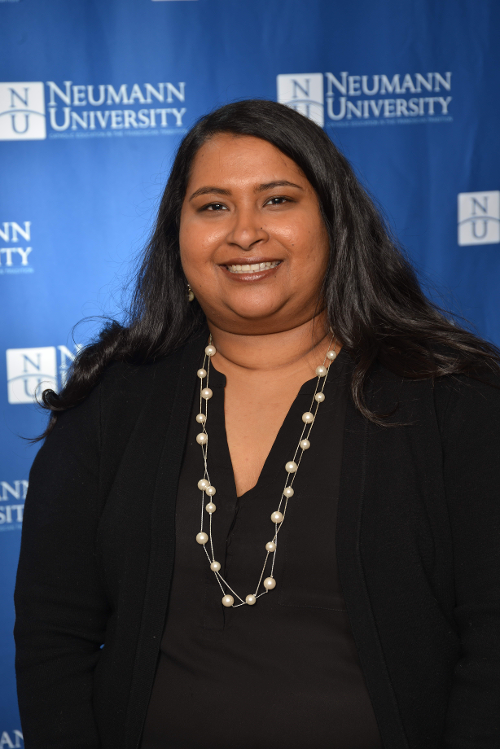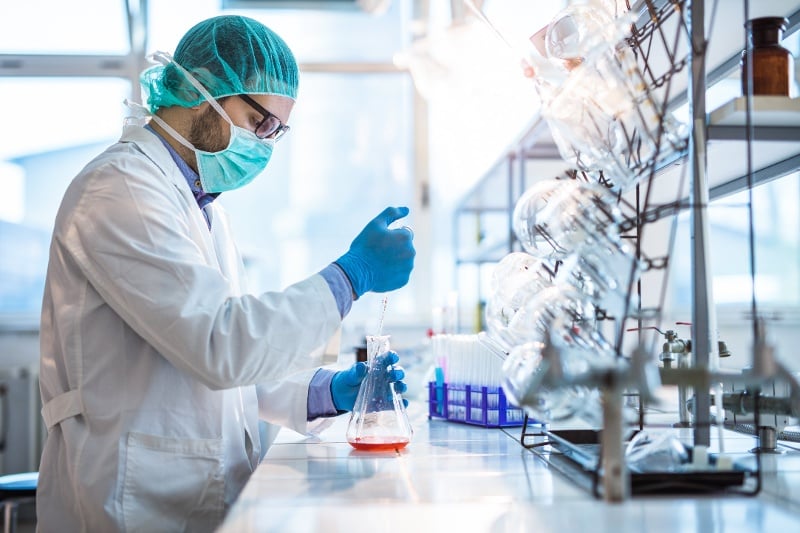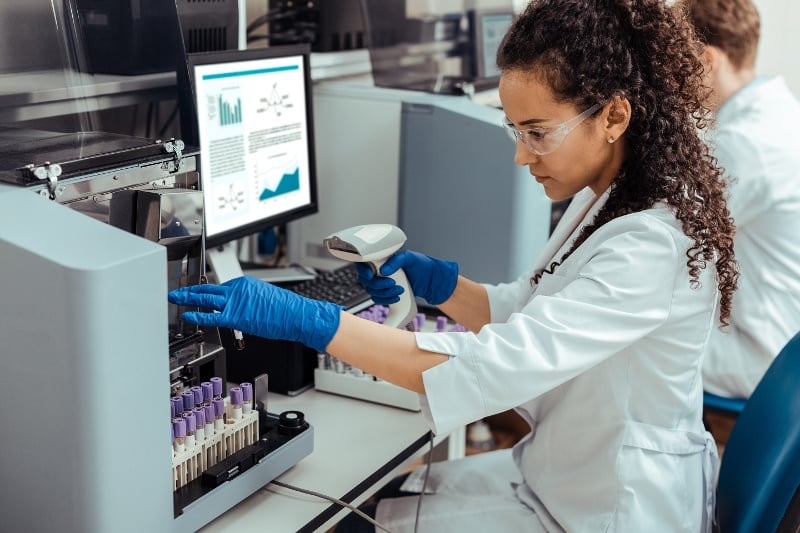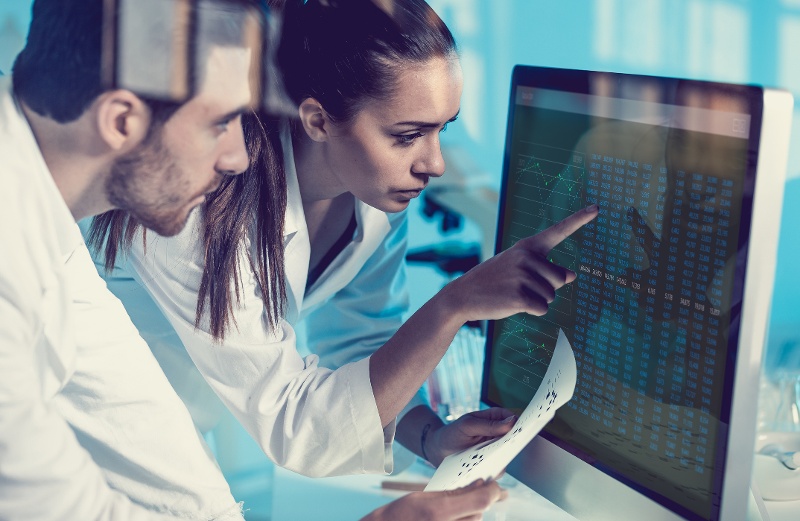
Did you know that clinical laboratory scientists are in high demand — both in the state of Pennsylvania and nationwide?
In response to a need for dedicated and effective clinical laboratory scientists who can work in medical, clinical, and pharmaceutical laboratories, Neumann University offers a rigorous, two-year Post-Baccalaureate Certificate in Clinical Laboratory Science that is designed to prepare students for cutting-edge careers as well as advanced study in forensic, agricultural, pharmaceutical, governmental, clinical, and academic settings.
Let's dive into the details behind this post-baccalaureate certificate and examine how pursuing certification at Neumann University will prepare you for a lifelong career that's dedicated to research and results-driven work.
What is Clinical Laboratory Science?
The Post-Baccalaureate Certificate in Clinical Laboratory Science prepares students for cutting-edge careers as well as advanced study in forensic, agricultural, pharmaceutical, governmental, clinical, and academic settings. Students are introduced to a rigorous course of study that prepares them for careers in medical, clinical, and pharmaceutical laboratories, as well as opportunities for graduate study in research, forensics, and medicine.
Students are taught about medical conditions and how to apply that knowledge to the performance of clinical laboratory tests. Through this learning process, students are enabled to play a crucial role in the detection, diagnosis, and treatment of disease.
As part of their program requirements, students must participate in and successfully complete a clinical practicum. Graduates of this track may also write to appropriate certifying agencies requesting a general certification in medical laboratory science as well as categorical certification in clinical biochemistry, clinical hematology, clinical immunohematology, and/or clinical microbiology.
NU's CLS Post-Baccalaureate Mission:
In accordance with the Mission Statement of Neumann University and that of the Division of Arts and Sciences, the purpose of the CLS Post-Baccalaureate Certificate is to provide excellent graduate professional education in clinical laboratory science that is founded on the core values of St. Francis of Assisi.
By linking Franciscan values and professional education, graduates of Neumann University’s CLS Post-Baccalaureate Certificate Program will have the knowledge and skills that are required for competent professional practice; for lifelong development of that practice; for advanced study in biology, clinical lab science (CLS), or education; and for fulfillment of professional and social responsibility.
Learning Outcomes of the CLS Post-Baccalaureate Program:
After completing all CLS course work and clinical practicum with a minimum competency of 80 percent, graduates will be proficient in the following entry level Learning Outcomes:
- Perform a full range of laboratory tests with accuracy. These outcomes include the ability to:
- Develop and establish procedures for collecting, processing, and analysis specimens.
- Perform the full range of clinical laboratory tests in areas, such as hematology, clinical chemistry, immunohematology, microbiology, serology/immunology, coagulation, molecular, analytical tests of body fluids and other emerging diagnostics with accuracy.
- Perform assays according to laboratory protocol and recognize factors interfering with test results and take corrective action.
- Operate equipment properly, trouble-shoot, and establish and perform preventive and corrective maintenance.
- Evaluate laboratory data results using quality control and quality assurance measures, and institute proper procedures to maintain accuracy and precision.
- Apply principles of quality assurance and quality improvement for all phases of laboratory services, such as pre-analytical, analytical, and post-analytical
- Comply with established laboratory safety regulations and regulations governing regulatory compliance related to laboratory practice.
- Develop a sound scientific knowledge foundation that prepares them to interpret, analyze and evaluate scientific knowledge in clinical practice. These outcomes include the ability to:
- Apply scientific principles, such as physiology, immunology, biochemistry, molecular biology, genetics, microbiology, laboratory principles, and methodology to the clinical setting.
- Evaluate discrepancies that impact laboratory services by integrating and relating data generated by the various clinical laboratory departments and make corrective decisions.
- Confirm abnormal results, verifying quality control procedures, executing quality control procedures, and developing solutions to problems concerning the generation of laboratory data using interpretive algorithms.
- Apply principles of continuous assessment to all laboratory services by developing, evaluating, and selecting new techniques, instruments, and methods in terms of their usefulness and practicality within the context of a given laboratory’s personnel, equipment, space, and budgetary resources.
- Evaluate published scientific studies utilizing knowledge of research design.
- Develop professional competence. These outcomes include the ability to:
- Communicate through oral and written skills, effectively and professionally to enable consultative interactions with healthcare personnel, external relations, customer service and patients in order to function successfully as a member of the healthcare team
- Demonstrate ethical and professional conduct with patients, laboratory personnel, health- care professionals, and the public.
- Participate in continuing education as a function of growth and maintenance of professional competence.
- Apply principles of educational methodology to educate providers and users of laboratory services.
- Apply principles and concepts of healthcare delivery systems performance improvement dynamics in relation to laboratory service, laboratory operations, financial management and human resource management of the clinical laboratory to enable cost-effective, high-quality, value-added laboratory services.
Success of NU's Graduates of the CLS Program:
Graduates of NU's CLS Post-Baccalaureate Certificate have experienced significant success post-graduation. Consider the stats below:
- In the BIO/ CLS Class of 2014-15, 100% of the graduates were employed within 3 months of graduation. Most had jobs lined up before they graduated.
- In the BIO/CLS Class of 2015- 16, 100 % of the graduates were employed within 3 months of graduation. Most had jobs lined up before they graduated.
- In the BIO/CLS Class of 2016- 17, 100% of the graduates were employed within 3 months of graduation. Most had jobs lined up before they graduated.
On average of the last three years, twenty percent of the graduates pursued further education after graduation.
NU's CLS Accreditation:
Neumann University’s certificate in Clinical Laboratory Science is accredited by the National Accrediting Agency for Clinical Laboratory Sciences: 5600 N. River Road, Suite 720, Rosemont IL 60018; Telephone: 773-714-8880; Fax: 773-714-8886; or www.naacls.org.
Are you ready to make a real difference?
By choosing to pursue the Post-Baccalaureate Certificate in Clinical Laboratory Science at Neumann University, you are exemplifying your dedication to excellence and to impacting real, tangible change in the world around you.
So, if you're interested in how to become a laboratory scientist who can prevent, diagnose, and treat disease, we encourage you to contact us and request more information!
 CHALLENGE
CHALLENGE

